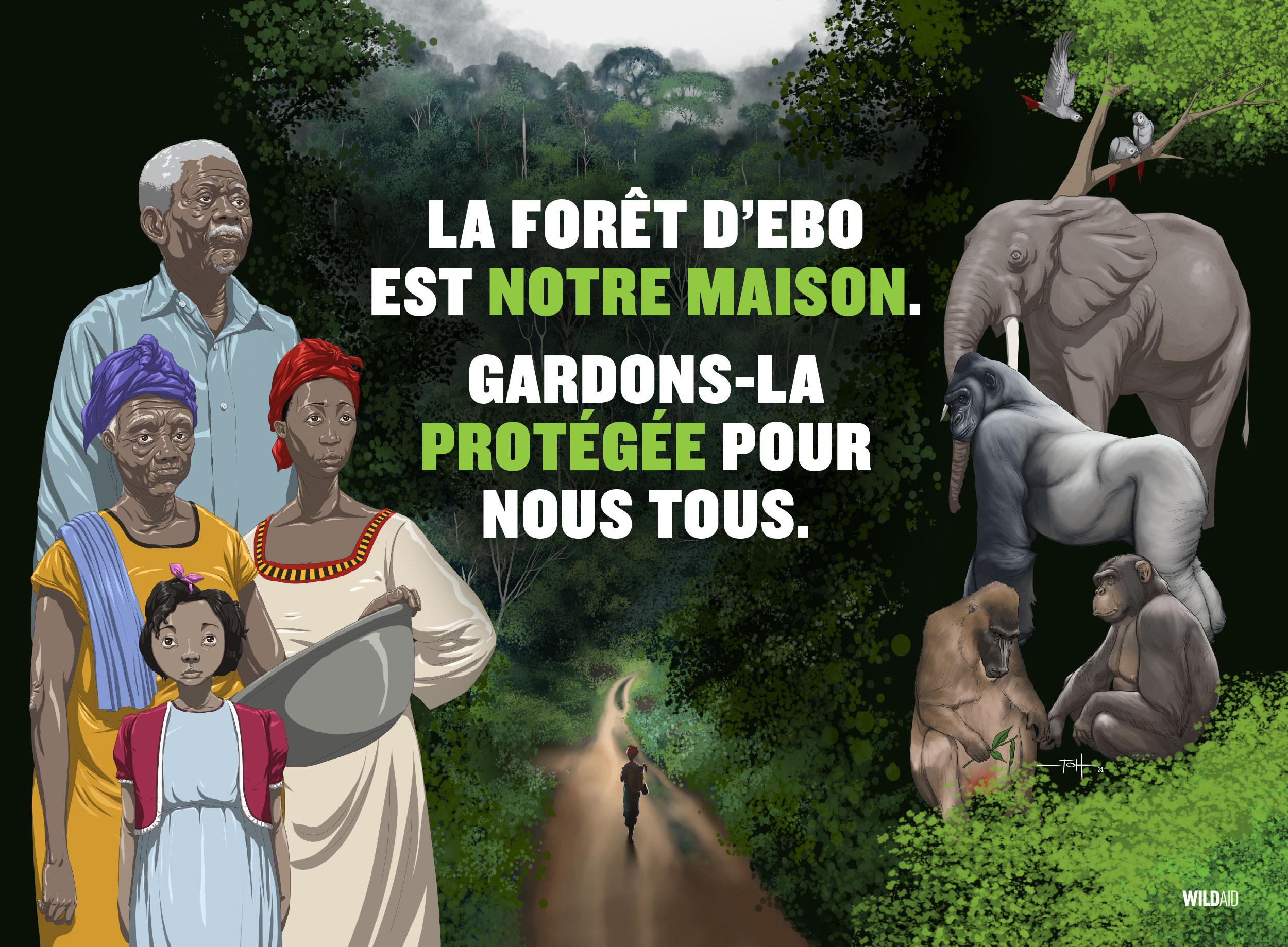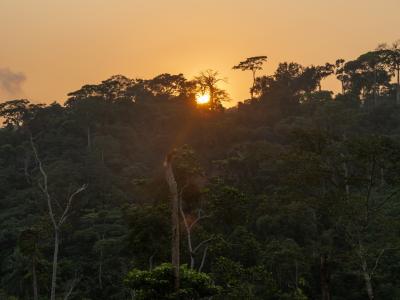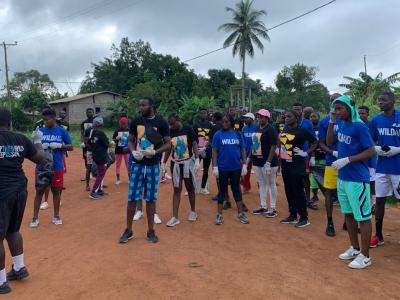Rich in nature and natural resources, Cameroon’s biodiversity and ecosystems are under alarming and accelerating threats. Part of both the Congo Basin and Gulf of Guinea ecosystems, Cameroon has some of the richest forested areas in West and Central Africa, home to numerous endemic and endangered species and numerous communities that depend on these areas for livelihoods, resources and sustenance. However, decades of resource exploitation, fueled by corruption, has instead resulted in a 4% decrease in primary forest area and a 5% fall in total tree cover in the last 20 years alone. Coupled with rampant hunting for the bushmeat and illegal wildlife trade, and mass deforestation for logging, agriculture, plantations, roads and mining, Cameroon is increasingly vulnerable to climate change. Furthermore, instability in the Anglophone part of the country has put an estimated 80% of animals in the region at risk of extinction.
"Say No to Pangolin Meat" campaign
Pangolin populations across the world are facing extinction due to rampant poaching for their meat and scales. While demand in Asia - particularly China and Vietnam - drives much of this trade, African pangolin species face mounting local and regional pressure. Each year, hunters harvest some 5 million tonnes of wild game in the Congo Basin to supply growing bushmeat demand in both rural villages and faraway urban centers. Pangolins are a preferred choice for domestic consumers of bushmeat while their scales are used traditional medicine and spiritual practices.
Cameroon has emerged as a major export country for the international trade of pangolins. This trade is already severely impacting local pangolin populations, particularly the giant, white-bellied, and black-bellied pangolins. Without intervention, these populations could face imminent extinction.
In order to ensure their survival, we aim to drastically reduce the consumption and trade of pangolin meat and scales through a three-year campaign designed to shift individual and societal behaviors toward more sustainable practices. The goal is to inspire a permanent shift in consumption and trade of pangolins in five major cities by promoting understanding, recognition and appreciation of the value of biological diversity for individual, ecosystem and economic health. We will help enforce this shift by strengthening the capacity of local law enforcement agencies to implement existing wildlife laws.
The Ebo Forest is Our Home
Ebo Forest is located about 60km from Cameroon’s largest city Douala. Stretching over 1,500 square km, it is the most functionally intact ecosystem in the Gulf of Guinea forest region. Not only is it home to 40 communities who have been living off its resources for decades, it is also considered the most important place in Cameroon for botanical research, providing shelter to diverse and endangered fauna such as gorillas, forest elephants, drill monkeys and a rare species of Nigeria-Cameroon chimpanzee, who are the only known chimp population to both crack nuts and fish for termites. Ebo Forest also holds roughly 35 million tonnes of carbon making it a site of global importance for combating climate change.
This has made Ebo forest a rich target for its resources - particularly wood. In 2020, the government of Cameroon government opened up part of the Ebo Forest for logging. This would not only have resulted in the catastrophic loss of habitat for many endangered species, but also for the communities who depend on the forest for food, water and medicine and access to important cultural and ancestral sites that lie within it.
Thanks to a global outcry and local and international media coverage, the decree was swiftly reversed. However, the threat to Ebo remains. Without sustained media coverage and publicised government commitment, it could quickly fall off the public’s radar, and face new threats.
In March 2021, WildAid launched a national media campaign including videos, billboards and social media to rally public and political support for keeping Ebo Forest free of commercial exploitation and instead allowing for sustainable land-use management. Our goal is to increase awareness about the risks of re-opening Ebo to logging and other destructive activities, provide local communities with a platform to air their viewpoints and give them a voice in deciding Ebo’s future, as well as to bolster support among Cameroon's urban population for keeping Ebo Forest (and others just like it) protected.







